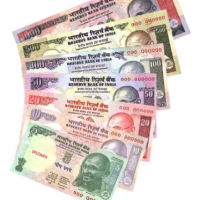How Software Quality Fits into a Cashless Economy

Amid the chaos and national protests against the demonetization drive that India has been seeing recently, the country is slowly settling into a new framework—the digital payment framework. While time will tell if the adoption will be one hundred percent and whether the economy can become cashless, the rise in cashless transactions is certainly very visible.
There's not only been an increase in the typical credit and debit card use but also an increase in digital mobile payments—even in the mom and pop shops that are widespread across the country. Payment solutions such as PayTM and PayU are being widely utilized by new users, especially in the last few weeks. Specific payment solutions, such as PhonePe, tied to leading retailers, such as Flipkart, are also on the rise. Digital payments are certainly growing to become the norm.
While this premise sets the base for growth from a business angle, what does this mean from a quality angle? The core functional workflow is obviously going to be taken care of by the payment providers. Even non-functional areas such as usability may not be very significant as the workflow itself will largely be simple and intuitive. What will be very important are the non-functional areas of security, performance, and accessibility.
While the industry touts the simplified and often times quick payment process, all it takes to break into a system and impact millions of users’ sensitive data is just a few seconds. Security testing is the most important of all quality attributes and where all vulnerabilities will need to be tested. A lot of ethical hacking opportunities will have to be accounted for in the testing process, as well as the importance of performance testing. There is no definitive number on what’s good from a performance angle, but as an end user, I would expect my transaction to be securely complete within a few seconds.
And finally, a huge section of any community that benefits from such digital transactions is the differently-abled. The physically challenged, including the blind and hearing impaired, are all increasingly conducting online transactions. Accessibility of digital transactions has become more important now than ever before. Technology leaders, such as Microsoft, are partnering with banks to support the process through new frameworks, such as blockchain technology, to make the transactions reliable and safe.
Digital transactions are more than just transactions today. They are becoming social experiences—with apps such as Venmo seeing ten times growth in dollars transacted in about two years. With large economies such as India setting the stage for cashless transactions, the potential is huge. However, quality will play in important role in ensuring a smooth and seamless adoption of these solutions among the masses.

